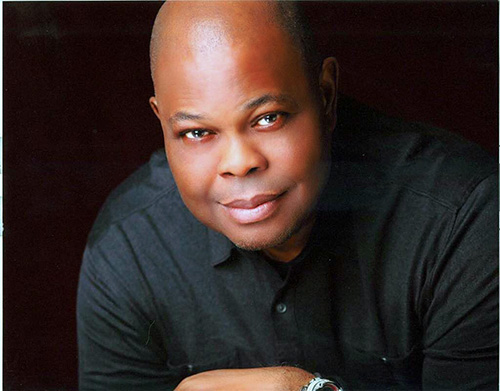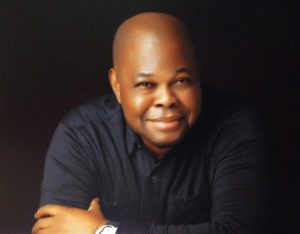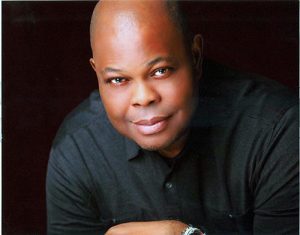In Nigeria, much has changed since we gained our independence from the colonial Britain, and mostly in the negative. The issues have been mostly and grievously, still the same, and they are getting worse by the day. The groundswell of discontent and the spiraling distortions, have become the prevailing norm of our lives.
“We are rich”. Those profound words were the common epithets around us proud Nigerians, and the view held by the entire world about us as a land of opportunity, and a haven for investors. But this was a very long time ago. We were a resources – rich nation, a favourite destination for everyone – from business persons to tourists. Lagos, our old capital, was a welcoming city, a gracious center of pride and joy filled with a conglomeration of our peoples from all tribes and tongues, and from all corners of our world, each bearing their beliefs and faiths without fear or favour.
Our country was a hub of first-rate infrastructural development – from the European – built and financed railway network to our airports and seaports which supported the ease of transport of persons and goods in and out of the country. Nigeria was a member in almost perfect standing, of a post independence system that had all the promises of success. But that was a longtime ago.
Then came the civil war, a devastating misadventure that decimated everything that we may have achieved post independence. The period of that rancid war, inexplicably, presented the darkest moments in the life of our country. We lost our sense of caution and humanity, and participated in a shameful vile goal that inflicted monstrous atrocities and beastialities on our fellow citizens. This period, signaled the downward spiral, decline, and fall of our country.
From the day that this war ended in 1970, the Nigerian State became a wasted opportunity without any promising or bright future. It became a kleptocratic
State that is so divisively dysfunctional, with political structures that are not inclusive, and that are devoid of equality, fairness or equity, infested with tyrannical and incompetent leadership. Today, our country is faced with more anachronistic dimensional problems that appear to be even more deadly and detrimental than the 30 month civil war.
Our country has descended so dangerously into an anarchy State that the current combustible intensity of partisan animosities, tribal and religious bigotry, reflect amongst other disturbing issues, the effect of the growing polarization in our polity and our economy. These contending variables convince me that our country may never be properly aligned with the politics and economics of nation building and growth.
How can we make our country work again as it did before it was polluted by our leaders?
The ultimate survival of our country depends on us all, even as it is abundantly evident that we are still deeply vulnerable to the pathologies that began to plague us when we started our fall to infamy. With the primitive and the gratuitously disgraceful actions and behaviour of our political actors, and the incivility of its leadership, we are thoroughly making a mockery of ourselves. We are, essentially, in such an alarming and catastrophic manner, denigrating our sensibilities to the critical elements that nurture, sustain and stabilize our institutions.
The myriad of problems confronting and hindering the growth of Nigeria are many. They range from political, social to economic issues like; leadership deficiency, followership blindness and docility, weak democratic structures, deficient power (electricity) supply, dilapidated road network, air, rail and waterways transportation inefficiency, insufficient domestic food production and processing, fuel and oil industry problems. These problems and others that include corruption and strifes and the killings that follow them, have continued to fester unabatedly, holding our country in a precarious stronghold and in a pinfall perfected by sumo wrestlers.
For well over 50 years, our country has confronted these deep – rooted problems and has failed, or has been unable to solve or resolve them. We have exponentially become poorer, weaker, despondent, wicked and more miserable. The variables that made us economically strong, rich and happy in the early 1960s, have all but disappeared. Recall that we used to be number 3 in the entire world in the production and distribution of cocoa, rubber, and palm oil, and that we were in the group of the world’s largest producers of textile, sugar cane, sorghum, cotton, magnesium, columbite and tin, among other valuable products. Until the cursed crude oil became a prominent feature in our economy, and on the menu of our thieving leaders, Nigeria had a strong, enviable, viable and potentially progressive economy that was the toast of the world. Today, we have become desperately poorer and may have no clue of how to scamper out of this quagmire, and how to return our country to greatness again.
There is not a single reasonable Nigerian citizen of age and maturity that can claim ignorance of the calamities that have befallen our country. We all know who the culprits of our collective doom are, and how they perfected their ruthful and rueful ruination of our country. These known “killers” of Nigeria with what appeared to be the success of their heterodox policies during our initial struggling days to the present times, helped to establish governing habits that became increasingly detrimental and destructive to the growth of the nation. They established many nightmarishly silly and redundant policies that discouraged investments and encouraged and fostered corruption.
Whether we achieve some level of consentiency on my positions here, or not, what is certain is that our country has reached rock bottom in all the spheres of our lives and existence. We have reached the appropinquate point that is very close to the cliff of no-return, and with a little shove, we may all be history. The apodictic of this my narration, even as bleak and hopeless as it appears, is unassailable and irrefragable. Without any doubt, we are irrebuttably in serious trouble.
In the past 5 decades or more, our country has been ladened with a retinue of bad, incompetent, corrupt and inexperienced leaders, who essentially did not, and do not understand the science of how to manage an economy. This presented clear limitation on how to create prosperity for the people. When the entire world was shifting grounds on the demand and supply sides of the world’s economy, our policymakers were clueless and lacked proper economic thinking that would have kept us abreast and lifted us from poverty to prosperity. Paradoxically, the weakness of our planners left us behind as our economy suffered. They were unable to grasp with dexterity, the intricate World Monetary Agencies predatory influences over us.
One of the critical purposes of this short essay is to provide a brief and objective account of our political and economic evolution since independence, and to examine the persistent problems of governance, dissecting how these intractable problems have held and strangulated the country, stunting its growth and advancement. It is painfully true that the analytical and prescriptive view of Nigeria, bearing in mind the total cognitive evaluation of our past and our present, paint a very contemptuous and consequentially dire situation for us. The real question then, is if in examining these problems we can find a way to make Nigeria work again.
I am frightened by the prevailing evidence today that Nigeria has become injuriously more fractious than at any time in our recent history. Not even the apocalyptic civil war atrocities and the after effects of that evil war match the vicious trend of the events we are witnessing in today’s Nigeria. Equally evident, is the waning and decline of trust in the Executive, Legislative and Judiciary branches of government. This distrust has become rather centrifugal, raising the already high stakes of hostility, disunity and crisis that have engulfed the entire country.
At this point, I will seek to offer a cautionary tale about how quickly a robust country can be weakened and destroyed when actions ignored and not taken can inimically bode ill for the smooth functioning of a country. When we ignore to address the issue of good governance, lack of productivity, stunted innovative initiatives, poor management of natural resources, failure to diversify the economy away from the mono petro-dollar economy to a real sector industrial-based economy, we leave the fate of the country in a dangerous balance of endangerment.
What I ponder all the time and have sleepless nights over, is how Nigeria has overtaken India as the world’s poverty capital, despite being endowed with tremendous human and natural resources? Is this incredible paradox not heightened and made worse by the fact that we are Africa’s leading crude oil producer – the sixth on the OPEC list, and yet we are one of the leading importers of refined products, and in the process drain our foreign exchange reserves while conversely exporting jobs, economic opportunities and values.
Although so many extraneous factors are responsible for Nigeria’s downturn, I believe that the major factor is the issue of unstable governance and democratization. The perception and the reality of pervasive institutional and structural disorder, portends for domestic instability and destabilization. I see a clear nexus between a stable and safe government and the growth and advancement of Nigeria. If the government is unstable and unable to formulate, foster and implement economic and social plans based on consistent and strong policies, both fiscal, monetary and in other terms, the political, social and economic growth of the country will suffer. These, unfortunately, have been the bleak and depressing stories of Nigeria over many, many decades.
As we continue to question how and who will make our country WORK again, it is important to point out that the political and economic atmosphere in Nigeria today is deepened in despair and constantly fueling disenchantment that threatens the very fabric of our own very existence as a democracy. I believe that the exacerbation of non-democratic styles of governance are the greatest threats facing our democracy and forcing down our already battered-down precedents, leveling our established norms and ethos, and demolishing our constituted institutions. The shameful reality, is that our leaders have seized these moments of despair to inevitably eclipse power with the resultant destruction of all we hold dear and precious.
Now, we must ask ourselves, if the instability in our land, the hunger and starvation amongst our people, the wanton killings and the lack of empathy and compassion for human life and dignity, the general desecration of our various structures and institutions, are responsible for our tolling misfortunes, and if we can ever make things work again.
Yes, we can make things work again, we can restore our country to glory when, and if the right leadership is preferred and motivated with the requisite knowledge and will to do the right things for a country tethering on a complete cataclysmic collapse. What do we need from our leaders? First and foremost, let us make conscious choices laid in firm and strong foundation, and allow it to be the basis of our political activity. Let our choices be determined and be made to obtain its origin in fair and equitable judgment and reason, rather than in the euphoria aroused by the vain pursuit of glory, power and the lure of money, a useless sense of rivalry, or a lack of compassion and the will to do good.
The reality of our circumstances is that our country is infested with people who have thrown themselves into public affairs and politics simply because they have no meaningful and useful private business or lives worthy of their attention. On just a whim, these people venture into politics and stay there perpetually without a clue of why they are there, and when to exit. They have nothing worthwhile to do, but to pollute our political and economic systems, denigrating everything in their way. Those who enter politics on the basis of an unreasonable and a dishonourable judgment, and as a money-making occupation, are the trouble with Nigeria.
When our leaders venture into politics by way of rash and accidental actions, it is as if they have been blindfolded and cannot see, but those who have made proper descent into politics with deliberate and well-planned preparation, are most likely to conduct our affairs prudently. The latter group of people are absent in our political landscape.
We know all the problems bedeviling Nigeria. Even a child in the elementary school knows that the country is suffering from many ailments ranging from political upheavals, to economic degradation; that our refineries are moribund – that we rely on imported petrol to survive, that our farmers are not producing food – that we depend mostly on imported food to be alive, that we have borrowed so much money to fund our expensive and extravagant lifestyles – that this child’s grand children will be ladened with repayment burden for centuries to come, that the rate of inflation has gone through the roof – that this child’s mother may be unable to purchase simple sustenance provisions for her household, that this child’s home may be swept away by flood – because government has not paid any attention to the climate change debacle plaguing the country.
This child in the elementary school is not oblivious of who fostered and bequeathed our country with these burdens. The child knows that our politicians, in addition to inflicting us with these festering sore wounds, have also foisted on us; nepotism, tribalism, electoral malpractices and violence, corruption, outright stealing, insipid and clueless leadership and other pervasive issues that have inexorably dealt devastating blows to the stability and growth of Nigeria.
What our country needs now is a rescue operation and this must be done, and soon. I believe that it is only through credible, reliable and knowledgeable leadership that we can make Nigeria work again. There must be a general disquisition on the importance of political and economic ideas. It is ideas and not tribal or religious bigotry, or nepotism that will bring us out of this quagmire. The prevalence of vested interest is a dangerous recipe for good governance. We may never achieve the greatest we deserve and need, however, unless we are willing and able to clearly confront all our problems beginning from choosing those that lead us with clarity of purpose.
Dr. Okey Anueyiagu
A Political Economist
Is the author of: Biafra, The
Horrors of War



